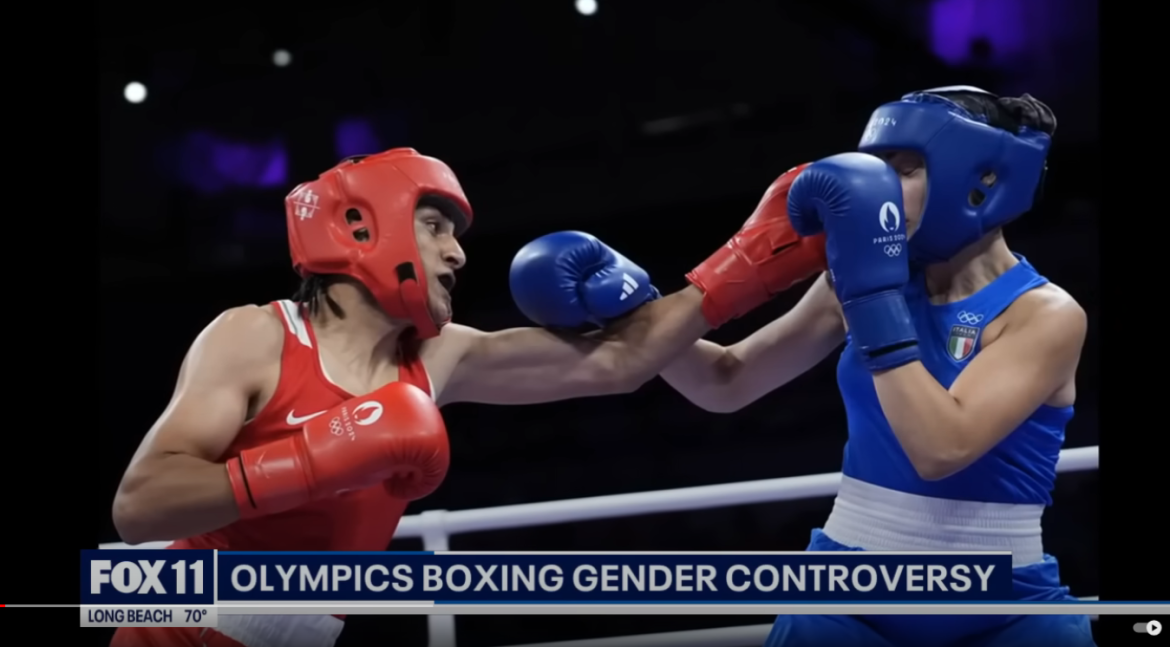The International Olympic Committee (IOC) is fervently defending Algerian women’s boxer Imane Khelif against allegations that she is a biological man competing in the women’s category at the Paris Olympics. The controversy, fueled by comments from former President Donald Trump and internet personality Logan Paul, has brought intense scrutiny on Khelif. The IOC, however, firmly dismisses these claims as baseless.
IOC chief spokesperson Mark Adams addresses the media, stating unequivocally, “Imane Khelif was born female, was registered female, lived her life as a female, and has a female passport. This is not a transgender case.” Adams’s remarks come in response to widespread allegations and a social media storm suggesting that Khelif’s participation is unfair.
The allegations gained traction after an Italian boxer, Angela Carini, quit a bout with Khelif just 46 seconds into the match, citing the intense pain from Khelif’s initial punches. This incident, combined with Khelif’s previous disqualification from the 2023 World Championships for failing a gender eligibility test, has intensified the debate. There have been reports suggesting that Khelif was born with Disorders In Sex Development (DSD), which can cause women to have higher levels of testosterone, but Khelif has not publicly commented on these claims.
Despite the controversy, Khelif continues to compete in the Olympics, with the Hungarian Boxing Association recently protesting her quarterfinal match against their fighter, Anna Luca Hamori. Although Hungary’s protest reflects ongoing concerns, they have confirmed that Hamori will fight Khelif on Saturday.
Former President Donald Trump has been vocal about his stance on gender issues in sports, particularly regarding Khelif’s case. During an appearance on the “Clay and Buck” show, Trump reiterates his position that men should not compete in women’s sports, a statement that consistently draws loud applause from his supporters.
Trump criticizes Democrats for supporting legislation that he claims allows biological males to compete in women’s sports. Responding to Vice President Kamala Harris’s remark that he is “weird” for his views, Trump counters by saying, “I’ve been called a lot of things, but I’m not weird. The laws and regulations Democrats want are weird.”
Trump pledges to reverse Title IX rules that permit transgender athletes to participate in women’s sports, arguing that such issues should not intersect with women’s athletic competitions. He expresses understanding for Angela Carini’s decision to quit her match against Khelif, emphasizing that Carini was not making a political statement but reacting to the physical pain inflicted during the bout.
The controversy surrounding Imane Khelif is part of a broader, ongoing debate about gender identity and fairness in sports. While the IOC stands by its decision to allow Khelif to compete, emphasizing her adherence to their regulations, the situation highlights the complex and often contentious nature of gender eligibility in competitive sports.
The upcoming documentary on Peacock, “Face to Face with Scott Peterson,” where Peterson discusses his life sentence for the murder of his wife Lacey and their unborn child, parallels the high-profile nature of Khelif’s case. Both instances underscore the media’s role in shaping public perception and the individuals’ fight to tell their side of the story.



